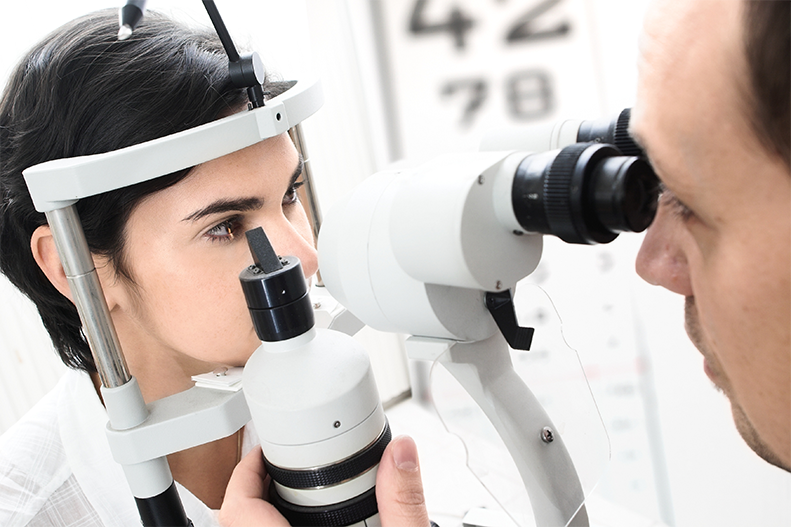This post was last updated on April 12, 2016
Exercise. Eat healthy. Head to the doctor for regular checkups.
What’s missing?
Regular visits to the eye doctor are a critical part of any healthy lifestyle — regardless of your current ability to see. In addition to adjusting your prescription, eye doctors can help identify chronic diseases, like diabetes or glaucoma. And for kids, eye examinations help ensure normal vision development needed for schoolwork and athletics.
Scott Drexler, OD, optometrist at the UPMC Vision Institute, tells us why it’s important to schedule routine eye exams.
Never Miss a Beat!
Subscribe to Our HealthBeat Newsletter!
Thank you for subscribing!
You can now select the specific newsletters you'd like to receive.
You are already subscribed.
Subscribe to more newsletters in our email preference center.
Sorry, an error occurred. Please try again later.
Get Healthy Tips Sent to Your Phone!
How Often Should You See an Eye Doctor?
You should have a routine eye exam every two years, particularly if you’re between the ages of 6 and 20, when changes in vision are common. Many people who are nearsighted or farsighted experience vision changes during this time of their lives.
If you’re older than 60, you should have an eye exam each year, as age-related eye problems are common.
It may be important to see a doctor more frequently if you’re experiencing any of the following:
- Blurry vision or loss of vision. If you notice it’s more difficult to see things near and/or far away, and perform basic tasks
- Flashing light in your eye
- Eye floaters, or small spots that appear in your vision
- If you’ve been diagnosed with significant health issues, including diabetes, high blood pressure, or thyroid disease
Why Should You Have Regular Eye Exams?
Vision changes can have a profound effect on your day-to-day life, and it’s important to identify and treat these common issues. Additionally, a comprehensive eye exam with pupil dilation can detect systemic conditions well before you experience other symptoms.
Some progressive eye diseases are not immediately apparent, and you should be tested for them during your regular eye examination. These include:
- Glaucoma: A chronic, progressive eye disease that leads to damage of the optic nerve.
- Macular degeneration: An eye condition that causes damage to the retina.
- Cataracts: The most common cause of blindness in the world.
What Does an Eye Doctor Check for During the Eye Exam?
Your eye doctor will first check these factors:
- Visual sharpness
- Color vision
- Eye muscle balance
- Gross visual field
- Refractive error, or your eyeglass prescription
Your doctor will then check the health of your cornea and iris, using a slit lamp microscope. Eye pressure will be checked to determine if you are at risk for glaucoma.
After inserting dilating drops, your doctor will check the health of your retina and look for problems like macular degeneration, cataracts, retinal detachments, and other complications.
To schedule an appointment at one of the UPMC Vision Institute locations, call 412-647-2200.
About UPMC Vision Institute
The UPMC Vision Institute is a national leader in the treatment of eye diseases and disorders. We seek to improve and restore your vision to help your quality of life, diagnosing and treating a wide range of conditions in both children and adults. Our treatments include both surgical and nonsurgical options. We also offer routine eye screenings and have full-scale optical shops. Find an eye expert close to you.
